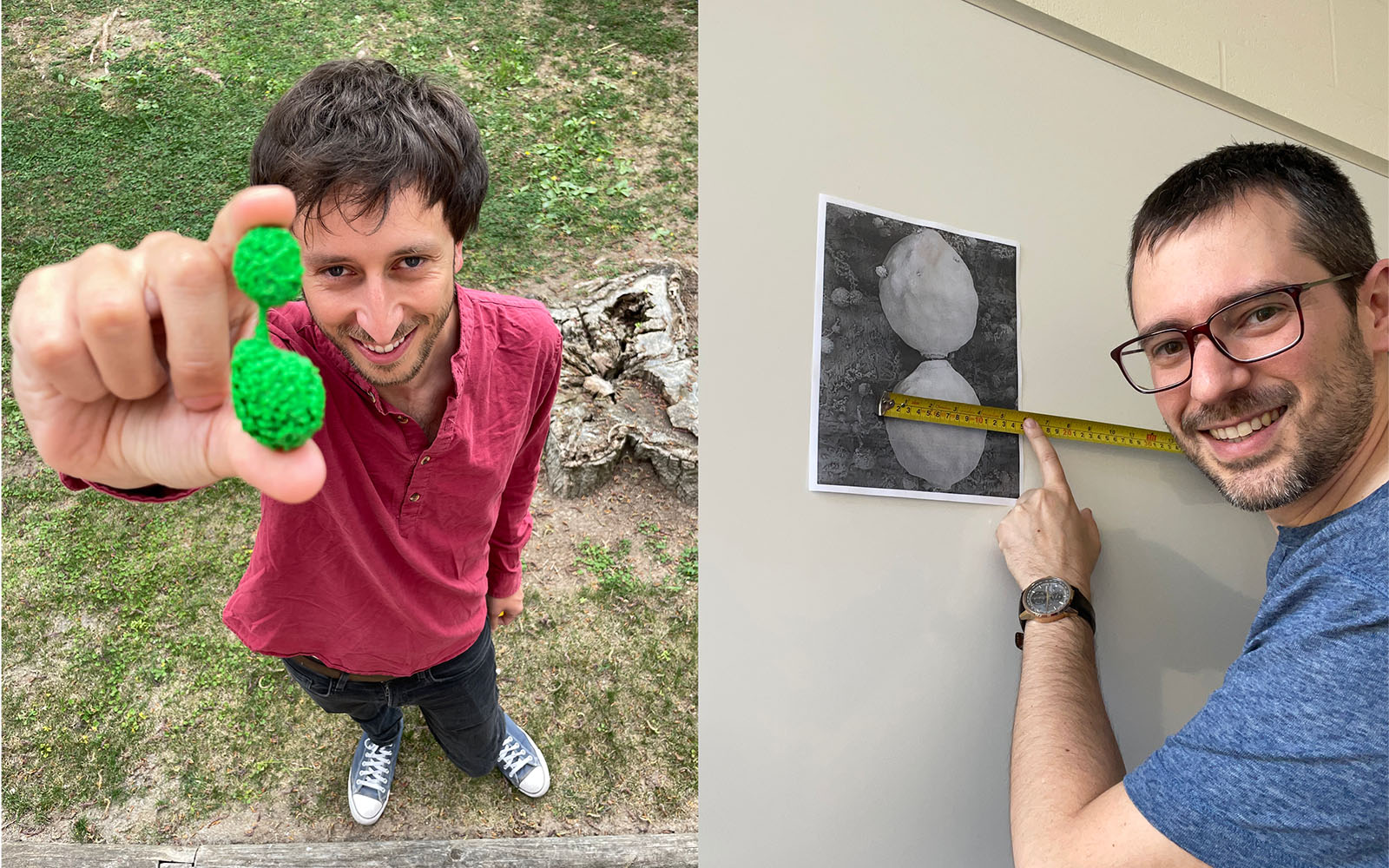Gulbenkian and Cornell University secure HFSP research grant award in 2023

Marco Fumasoni, principal investigator at Instituto Gulbenkian Ciência, Portugal, and Andrea Giometto, Assistant Professor at the School of Civil and Environmental Engineering, Cornell University, USA, were awarded with an International Human Frontier Science Program Organization (HFSPO) Research Grants – Early Career. Their project aims to unveil secrets about cell size diversity, and the evolution of intracellular scaling. Their findings will likely have broad implications in life sciences and biomedicine.
The 34 winning teams in the 2023 competition for research grants went through a rigorous year-long selection process in a global competition that started with 589 submitted letters of intent involving scientists with their laboratories in more than 50 different countries. This year, 9 Research Grants – Early Career and 25 Research Grants – Program were selected for funding.
“The winners in this year’s HFSP Research Grant Program are remarkable scientists pioneering life science research that needs international collaboration and basic science in frontier subjects – that is, investigations for which there are no prior studies,” said Pavel Kabat, HFSP Secretary-General. “I was thrilled with the proposals we received and look forward to the ground-breaking discoveries that will be revealed.”
With a total budget of $900.000 US dollars for the next 3 years, Fumasoni and Giometto will be leading the project “Experimentally evolving budding yeast cell size to test scaling laws in cell biology”. The project superstars will be cells, the fundamental units of life. Cells exhibit a remarkable diversity of sizes and shapes among different species. A diversity produced throughout billions of years since the last universal common ancestor. A fascinating observation is that the sizes of many internal components of the cell, such as the nucleus, genome, and various organelles, tend to scale proportionally with cell size. For example, larger cells tend to have larger nuclei. The mechanisms underlying these scaling properties and how cells modulate their size control while preserving scaling across species during evolution are currently unknown.
Marco and Andrea plan to answer these questions by vastly extending the range of sizes typically covered by cells of the most genetically tractable eukaryote, the budding yeast, by evolving and engineering them under controlled laboratory conditions. The interdisciplinary team will combine experiments, models and theory to unravel how cells can evolve or be engineered to different cell sizes, and how intracellular features will scale in response.
To Marco Fumasoni this award “represents a fantastic opportunity to work on a frontier scientific question, with an intercontinental and interdisciplinary team”. Developing this research will “provide the conditions and resources to combine our expertise at best”. In addition, “the collaboration will strengthen the connections between the two institutions and help building bridges across our reciprocal disciplines” emphasizes the researcher.
This “is an incredible opportunity for our two teams to exchange ideas and get out of our disciplinary comfort zones” adds Andrea Giometto, also thrilled for this award and the future to come. As he explains “as often happens in evolutionary experiments, we hope to be surprised by unexpected physiological and physical changes that cells may undergo in response to selection and engineering”.
In a nutshell, the project team aims to unravel the physical limits of cell size in budding yeast, and the evolutionary mechanisms that allow cells to reach them.
About the HFSP Award
HFSP Early Career Grants are for applicants within 5 years of establishing their independent research group and no more than 10 years from their doctoral degree. This group of investigators also proposes intriguing concepts such as the atmosphere as a living breathing ecosystem, or hydrodynamic motion cues in fish and to study the responses of organisms to novel environments. The 2023 HFSP investigators display remarkable depth in approach and innovative thinking as they start their intercontinental collaborations.
